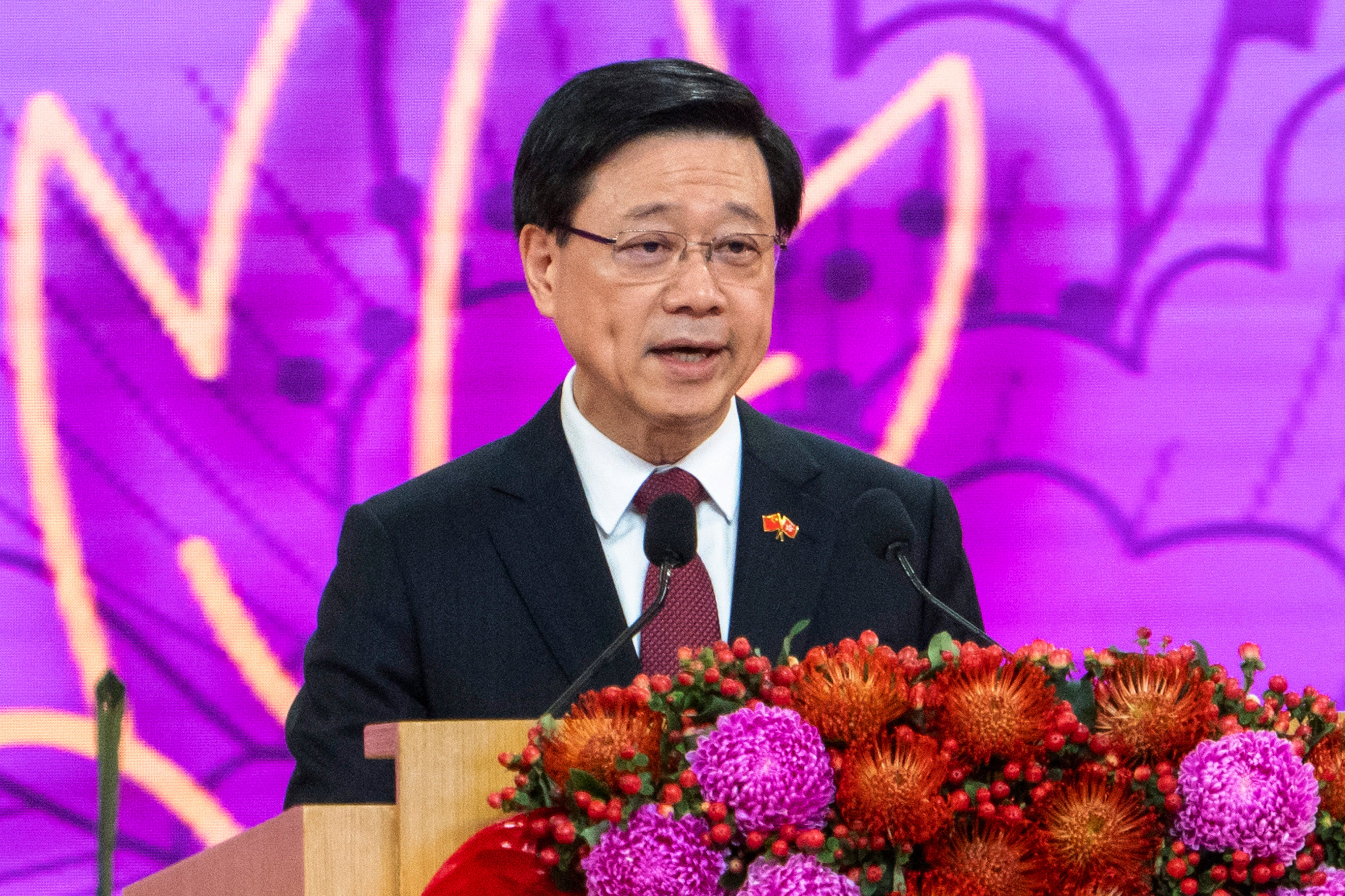Hong Kong cuts taxes for foreign home buyers and stock traders as it seeks to maintain global status
Hong Kong’s leader has cut taxes for some homebuyers and stock traders to boost markets as the city seeks to maintain its reputation as a global financial hub

Your support helps us to tell the story
From reproductive rights to climate change to Big Tech, The Independent is on the ground when the story is developing. Whether it's investigating the financials of Elon Musk's pro-Trump PAC or producing our latest documentary, 'The A Word', which shines a light on the American women fighting for reproductive rights, we know how important it is to parse out the facts from the messaging.
At such a critical moment in US history, we need reporters on the ground. Your donation allows us to keep sending journalists to speak to both sides of the story.
The Independent is trusted by Americans across the entire political spectrum. And unlike many other quality news outlets, we choose not to lock Americans out of our reporting and analysis with paywalls. We believe quality journalism should be available to everyone, paid for by those who can afford it.
Your support makes all the difference.Hong Kong’s leader on Wednesday cut taxes for some homebuyers and stock traders to boost markets as the city seeks to maintain its reputation as a global financial hub.
Chief Executive John Lee said the extra stamp duties imposed on non-resident buyers and current local homeowners looking to buy additional properties would be halved, making the first easing over the past decade since property cooling measures were introduced.
In his annual policy address, Lee also unveiled plans to reduce the stamp duty on stock transactions to 0.1% from 0.13%, saying a vibrant stock market is vital to upholding the city's status as a financial hub. He set a goal of having the necessary legislative procedures completed by November.
After the easing of COVID-19 restrictions, Hong Kong’s economy has begun to recover, fueled by growth in tourism and private consumption. The city’s economy expanded 2.2% in the first half of 2023 year-on-year and is expected to grow between 4% and 5% for the full year.
However, the path to full recovery remains uneven, particularly with geopolitical tensions rising and Hong Kong's largest trading partner, mainland China, struggling to rebound quickly.
The financial hub also has seen a mass departure of residents in recent years, triggered by a crackdown on pro-democracy activists following Beijing's imposition of a tough national security law, and the now-rescinded strict COVID-19 mandates. This emigration has hurt the economy and property market.
Official data showed a 15% year-on-year drop in home prices last December and a 39% yearly decline in the volume of residential property transactions in 2022.
Lee, acknowledging the decline in transactions and property prices over the past year amid interest rate hikes and modest economic growth in other regions, adjusted a raft of measures that manage property demand.
Under the slashed stamp duty, a foreigner buying properties in the city only needs to pay 15% of their purchase price as taxes, down from 30% currently. Current local homeowners will pay 7.5% for buying their second homes, down from 15%.
Foreign professionals working in Hong Kong on eligible visa programs are no longer required to pay extra property stamp duties arising from their non-permanent residency unless they fail to become permanent residents later.
“When they come to Hong Kong, we also encourage them to take root here,” Lee said at a news conference.
But Joseph Tsang, chairman of Hong Kong property consultancy Jones Lang LaSalle, said he expected some of Lee's property tax reductions to have limited impact on the market.
“The relaxation of cooling measures is only a band-aid solution that is unlikely to reverse the downward trend of home prices,” Tsang said in a statement.
A former security chief handpicked by Beijing to lead Hong Kong, Lee also is aiming to enact the city's own security law next year. Similar efforts were shelved in 2003 after fears about losing freedoms sparked massive protests.
Beijing has already imposed a national security law on the former British colony that returned to its rule in 1997. It criminalizes acts of secession, subversion, terrorism and collusion with foreign forces. But the city's constitution requires Hong Kong, a semi-autonomous territory, to enact its own laws for acts such as treason, secession and subversion.
“External forces continue to meddle in Hong Kong affairs,” Lee said, without elaborating.
He added the government will propose a bill to enhance cybersecurity of the critical infrastructure, such as financial institutions and telecommunications.
Other policy highlights announced by Lee included an entry program for investors and a cash bonus of 20,000 Hong Kong dollars (US$2,556) offered to the parents of newborns.